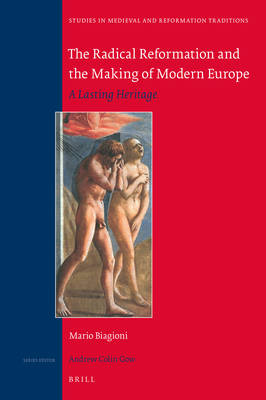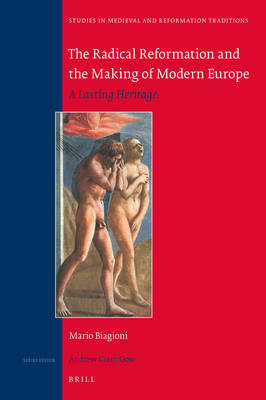
Je cadeautjes zeker op tijd in huis hebben voor de feestdagen? Kom langs in onze winkels en vind het perfecte geschenk!
- Afhalen na 1 uur in een winkel met voorraad
- Gratis thuislevering in België vanaf € 30
- Ruim aanbod met 7 miljoen producten
Je cadeautjes zeker op tijd in huis hebben voor de feestdagen? Kom langs in onze winkels en vind het perfecte geschenk!
- Afhalen na 1 uur in een winkel met voorraad
- Gratis thuislevering in België vanaf € 30
- Ruim aanbod met 7 miljoen producten
Zoeken
€ 196,95
+ 393 punten
Omschrijving
In The Radical Reformation and the Making of Modern Europe, Mario Biagioni presents an account of the lives and thoughts of some radical reformers of the sixteenth century (Bernardino Ochino, Francesco Pucci, Fausto Sozzini, and Christian Francken), showing that the Radical Reformation was not merely a subplot of heretical history within the larger narrative of the Magisterial Reformation. Religious radicalism was primarily an extraordinary laboratory of ideas, which played a pivotal role in the rise of modern Europe: it influenced the intellectual process leading to the cultural revolution of the Enlightenment. Secularism, toleration, and rationalism ― three basic principles of Western civilization ― are part of its cultural heritage.
Specificaties
Betrokkenen
- Auteur(s):
- Uitgeverij:
Inhoud
- Aantal bladzijden:
- 192
- Taal:
- Engels
- Reeks:
- Reeksnummer:
- nr. 207
Eigenschappen
- Productcode (EAN):
- 9789004335776
- Verschijningsdatum:
- 15/12/2016
- Uitvoering:
- Hardcover
- Formaat:
- Genaaid
- Afmetingen:
- 155 mm x 236 mm
- Gewicht:
- 408 g

Alleen bij Standaard Boekhandel
+ 393 punten op je klantenkaart van Standaard Boekhandel
Beoordelingen
We publiceren alleen reviews die voldoen aan de voorwaarden voor reviews. Bekijk onze voorwaarden voor reviews.









